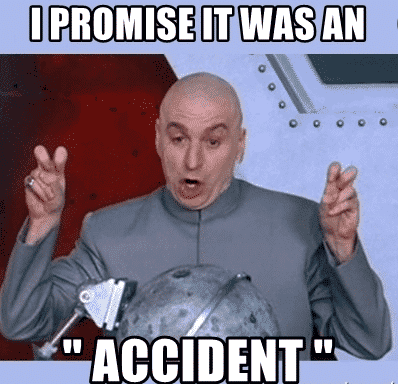Are All Collisions Considered “Accidents” In a Car Accident Lawsuit?
A common way that insurance adjusters start the process of beating your car crash lawsuit is to call the event an “accident”. They may attempt to get sympathy for the insured driver and make the collision sound like an accident that could not have been prevented. While it is the case that many minor auto collisions happen and do not injure anyone, it is inaccurate to say that every auto collision is an accident.

When a major auto collision happens and there are serious personal injuries, it is obvious that the person who caused the crash broke a motor vehicle safety law and is liable to have a lawsuit filed against them. He or she must be guilty of some form of reckless or negligent conduct.
It is important if you talk to the insurance adjuster for the other driver to not talk about the conduct of the at fault driver as a mistake or as an accident. If the auto collision was definitely an accident, it is possible the law could hold neither party responsible. For there to be a successful claim or car accident lawsuit, there usually has to be liability or fault determined, unless you live in a no-fault car accident state.
The distinction is so important between auto collision and accidents that some states have even changed their Uniform Accident Reports to Uniform Traffic Crash Reports. The reasoning behind the change in language is that it is important from a legal standpoint to refer to car crashes as collisions, and not accidents.
Actually, the term ‘car accident’ is a term that has been hotly debate for years in personal injury law. According to an article in the Journal of Traumatic Stress, the term ‘motor vehicle crash’ or collision should replace the term ‘motor vehicle accident.’ The reasoning behind this was simple: Research shows that most fatal car collisions involve things that are not accidents at all, such as:
- Intoxication: Drunk and drugged driving is one of the most common causes of vehicle collisions and except in very rare circumstances, being drunk or drugged behind the wheel is a matter of choice. It is incorrect to refer to a drunk driving collision as an accident.
- Speeding and recklessness: Speeding is the top cause of car accidents, and greatly increases the risk of injury or death. Speeding is a factor in up to 1/3 of traffic crashes. It also plays a big role in injuries caused by motor vehicle collisions. Speeding also makes collisions worse. All it takes is an increase of a few miles per hour to greatly increase the force of a collision that can lead to devastating injuries.
- Distracted driving: Distracted driving has gotten worse in recent years as more and more drivers use their cell phones for phone calls and texting when they are driving. Using a cell phone while driving is against the law in almost all states, and any crash that happens when someone is using a cell phone is not an accident.
There also is strong evidence that characterizing an auto collision as an accident can reduce the monetary recovery of crash victims in car accident lawsuits, which can affect their health and well being.
Remember to not refer to a motor vehicle collision as an accident when you are talking to an insurance adjuster. It may sound like a small semantic difference, but in reality it can be a very costly mistake.

